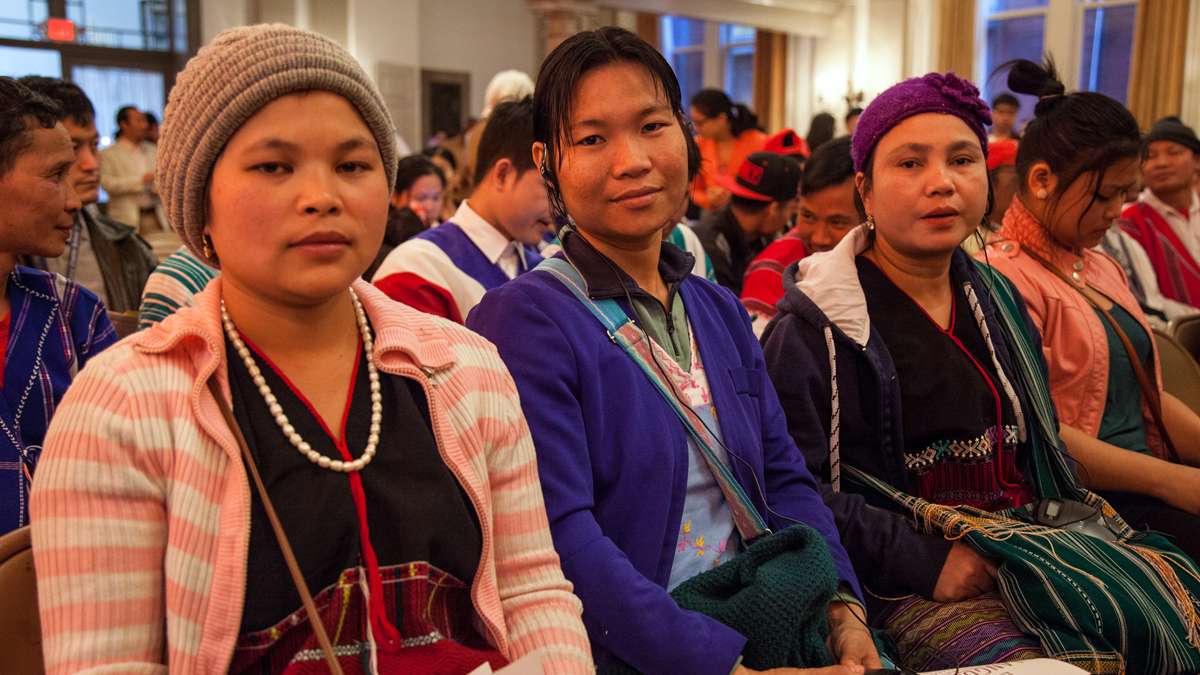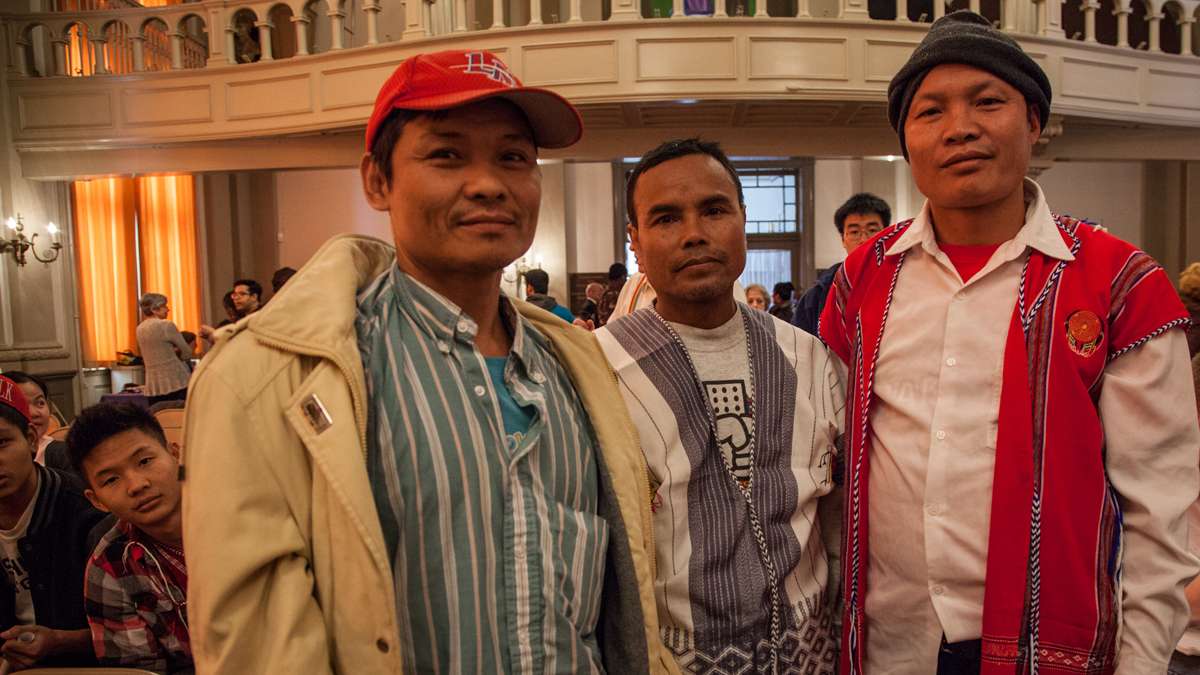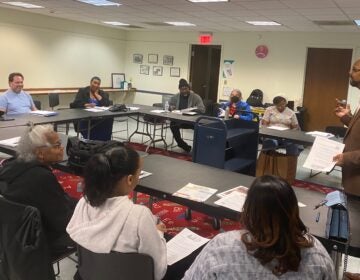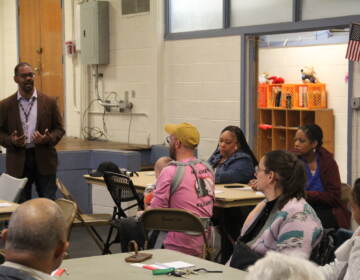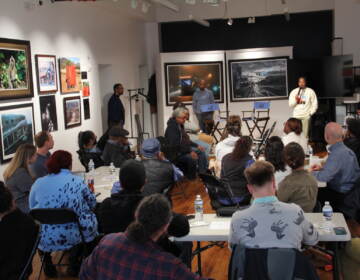The success of immigrant communities starts with support of neighborhood schools
To help my neighborhood succeed, the next mayor needs to know how critical it is to the Karen Philadelphia's community to support our city schools financially and politically.
Speak Easy is examining issues of neighborhood development in Philadelphia. How can city leaders help us achieve a fair future for long-term residents and newcomers alike? Seeking diverse perspectives on these issues, NewsWorks is hosting a public forum, “Philadelphia Neighborhoods in Flux,” on April 21 at WHYY studios. Registration is free at whyy.org/speakeasy.
—
Since I came to South Philadelphia in 2008, the demographics of my neighborhood have changed constantly. I see American neighbors move out because of the increase in property prices. Then I see new immigrant refugees move in with the support of a resettlement agency that pays their rent for a few months. After that time, they move out because they need to stand on their own, and they need to look for cheaper rent.
My newest neighbors are refugees from Burma, like me, and refugees from Nepal who have the same refugee experiences as us. We also have neighbors who are Chinese American, African American, Latino, and white.
Every year property prices increase, and it’s affecting me and my neighbors. Sometimes neighbors move to another state with lower prices. I have seen more than 15 families from our community move to another state for that reason.
The needs of our community
My community needs training for better understanding of legal rights and regulations. We need to improve relations with the police department for better safety. We need GED classes for adults, and we need to connect young people in the community with neighborhood and city youth programs. The community needs leadership training, affordable housing for new immigrants and low-income families, and a better connection to Philadelphia’s leaders.
We are meeting some of these needs by connecting with the police, offering adult ESL classes, and some youth activities that involve leadership training. We can improve the situation by finding community members to act as liaisons to the police department, offering GED classes in the neighborhood so some adults can get access to job training and make a better life. It would help to have youth leaders in the city come and visit new immigrant communities, share resources with immigrant youth, and encouraging them to pursue an education and improve their quality of life.
I have tried to play a role in tending to these needs by inviting the captain of the police district to our community meetings, talking to a local agency about how to make GED classes available for my neighbors, and getting in touch with city youth organizations.
The main concern I have is for safety in the elementary schools. Not one elementary school in my neighborhood has a single school police officer at the front desk to track who comes in and where they go. I am also concerned about cutting school resources.
In our neighborhood and community, so far we have improved our relationship with the school and health care center. And we are happy for city services like public transportation and other public benefits. For me, living in Philadelphia, I have not experienced any cultural blocks, but for many new immigrants it’s really hard to gain access to local public resources because of language issues.
What the next mayor needs to know
To help my neighborhood succeed, the next mayor needs to know how critical it is to the Karen community of Philadelphia to support our neighborhood public schools financially and politically. Local schools are struggling to provide essential services to students as schools are not afforded guidance counselors, nurses, truancy liaisons, operations staff, school police and interpreters on a daily basis. As the number of immigrants — and, more specifically, refugees — rise, there is a greater need in schools to support literacy development, English language skills, and mental health initiatives, as well as academic and twenty-first century skills.
While many schools, in part due to the support of partner organizations, are able to make up for some of the drastic cuts, the reality is that the neighborhood schools have higher populations of English Language Learners, students with IEPs, and students who have faced disciplinary action resulting in transfers to the local school. These students require additional support to prepare them properly for careers and college.
Additionally, the continued concentration on high-stakes testing as the only measure of a school’s success, is especially harmful to these already marginalized populations who have years of content to make up. Whether due to gaps in education, immigration, learning differences, or poverty which leads to a host of social issues, many of the students in South Philadelphia have suffered traumas that go unaddressed due to a severe lack of resources.
Similarly, the Keystone performance as a graduation requirement effectively eliminates 78 percent of all students from receiving a diploma overall. The number is closer to 100 percent in our populations of Karen students who enter the U.S. school system in high school and who do not have the requisite five to seven years to master academic English.
Our public schools here in South Philadelphia need your support and we look forward to working with the governor’s office to inject life back into what is a brilliantly diverse and vibrant community. While the people of the area are incredibly resilient, much like the refugees of the Karen community, students will not be able to sustain growth on good effort alone. In order to progress, schools need to be given more funds and the autonomy to differentiate offerings for the myriad communities that they serve. Evaluations of students, teachers and schools must be based on research-based, proven pedagogy, rather than corporate reform-initiated, big testing company interests, which do nothing to bring out the high-quality scholars that our students have inside of them.
—
Dai Lai Htoo was born in Karen State in Burma and moved to a refugee camp in Thailand in 1991. He lived in Thailand until 2008, when he moved to South Philadelphia and began working with the Nationalities Service Center, a refugee resettlement agency, as a community outreach worker. Since 2011, he has worked for the school district of Philadelphia as a bilingual counseling assistant, supporting new students and families from refugee camps.
Dai Lai is the founder of the Karen Community of Philadelphia, organizing monthly community meetings, fund raisers, youth activities, and cultural preservation. He helps build connections with city organizations to get access to local resources fofr his community.
WHYY is your source for fact-based, in-depth journalism and information. As a nonprofit organization, we rely on financial support from readers like you. Please give today.


